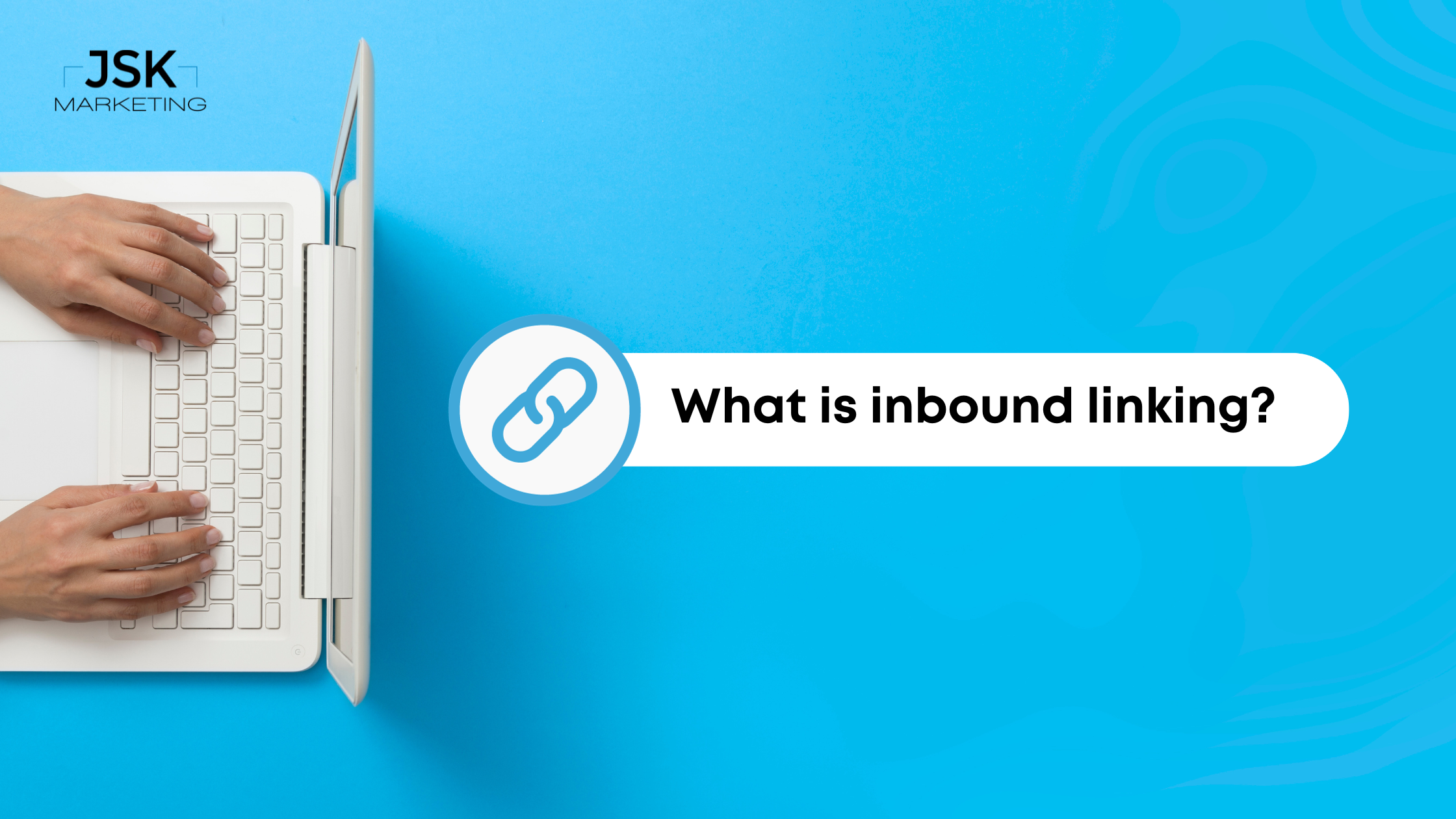
There are three different kinds of links in marketing: inbound links, outbound links and internal links. All three are vital for SEO purposes, but the most sought after are inbound links. What are they? How do you use them? And why are they so important? In this blog post, we’ll answer all three of those questions and more!
What is an Inbound Link?
Simply put, an inbound link (or backlink) is the link used on other websites that point to your website. When a website links to yours, it’s like they’re saying, “Hey, this content is worth checking out.” For example, here’s an inbound link to our president Jenn Kjellman’s most recent LinkedIn article. Jenn can now say that she received an inbound link from JSK Marketing, while we can say that we just put an outbound link into our blog. Inbound links are different from internal links, which are links that point from one page on your website to another page on your site. An example of this would be for us to link back to a blog post we wrote about the importance of internal linking for SEO. Now that you know the basics of links, let’s dive into why they’re important.
Why are Inbound Links Important?
SEO
Inbound links tell people who are searching the Internet that your website is an authority, and you could also be considered a thought-leader in your industry, thus ranking you higher on search engine results page (SERPs). It’s also one of the most high-value activities when it comes to SEO. However, inbound links are not the only factor for where you rank in SEO, but it is still very important.
Referral Traffic
When a respected site links to your content, people are more likely to click-through, sending a lot of referral traffic your way. For example, many of you might click on Jenn’s article above who may not have visited it before.
How to Earn Inbound Links
Earning an inbound link is one of the ultimate achievements in digital marketing. Earning these links boosts your website’s authority and credibility. But how do you earn them?
Create Quality Content
High quality, valuable content that addresses questions, needs and interests of your target audience and is posted regularly will help you earn more backlinks. This content can include blog posts, articles, infographics and videos.
Promote Your Content
Creating great content isn’t enough, especially if no one can see it. Promoting your content through various social media channels and platforms and email marketing will maximize your exposure. The more people see your content, the more likely it is to be shared and linked back to.
Link to Other Blogs in Your Blog
Blogging is very social. The more you link to others, the more likely they are to link back to you. Plus, it’s hard to cover everything about everything in one singular blog, so linking to someone else’s shares the wealth of resources on the web to make your blog’s experience better for your readers.
Do Something Funny
Funny posts and videos go viral and spread like wildfire overnight. Capitalize on the funny, inside jokes of your industry and turn them into content that can be linked back to. This can be a reel, meme, gif or a tweet that tells the joke. Just make sure that it’s nothing that your target audience will get offended by.
Inbound links are the secret weapon for becoming an online celebrity. These endorsements from other websites aren’t just SEO essentials, they also help with greater visibility, credibility and audience engagement. These links are the bridges that connect you with a broader audience and ultimately the success you want to achieve in the online world.
If you’re ready to take your online presence to the next level, let’s chat! At JSK Marketing, we specialize in SEO and blogging services that help businesses attain maximum reach and engagement. We can help create a strategy that is tailored to your specific goals and needs. Contact us today to get started!




